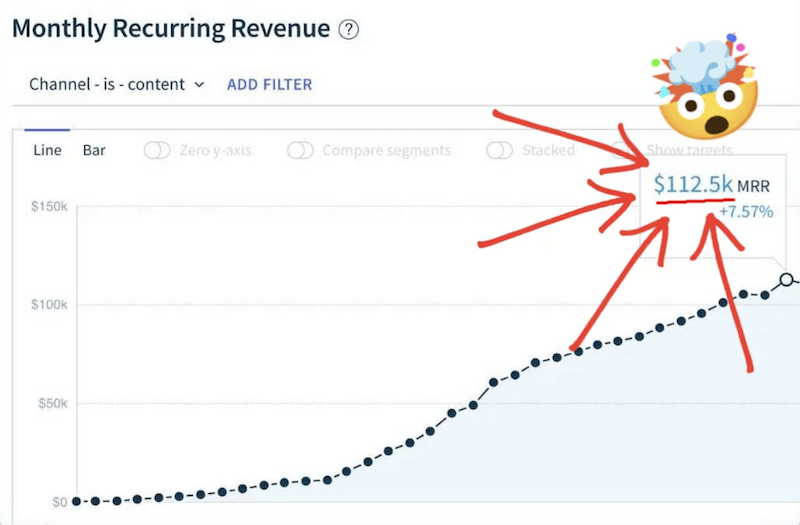What is a retail trader?
A retail trader is someone who buys and sells securities for themselves, with their own personal money. Retail traders can apply different strategies, but the end goal is always to make a profit from financial assets.
Retail trader fast facts
You don’t need a financial background to start with trading.
Retail traders are non-professional traders, and usually have other main sources of income.
Although it’s wise to have a financial buffer before starting trading, you can also start with a small amount of money.
There is no such thing as the best strategy for retail traders, because success depends on several factors.
Trading apps are not only for professionals. They can also boost the performance of retail traders.
Successful retail traders generate an additional income or build wealth in the long run.

A computer or smartphone, an internet connection and trading software are all you need to become a retail trader. Photograph: Trade-Ideas
How does retail trade work?
The easiest way to understand how retail trading works is to picture it as a virtual supermarket that works on bidding prices. There are buyers, sellers and products with variable pricing. These are called assets can be stocks, bonds, options, or crypto currencies, to name a few.
A trader can place an order for an asset. This happens on a brokering platform or investment software. These programs match orders between sellers and buyers for the agreed price and amount.
Finally, the settlement takes place. The seller gets the money on their account and the buyer gets the securities, in order to hold them or sell them.
What is the difference between a professional trader and a retail trader?
A professional trader acts on behalf of an organization and manages funds to generate profit from trading. Retail traders use their own money and trade as an extra income-generating side activity.
Professional traders have access to professional trading software, data resources and training. Their income usually depends on their performance.
Retail traders are accountable for changes in their personal financial situation since they make all trading decisions themselves. That includes, for example, picking brokers, trading apps, planning, executing orders, and on and on.
Which trading is best for beginners?
The most popular trading strategies for beginners are:
- Long-term investments are the easiest way to trade, because you only need to pick an asset, buy it and hold it over a long period of time.
- Algorithmic trading is also interesting for beginners. These apps choose potentially interesting opportunities and can even execute orders automatically.
- Swing trading is ideal for anyone who doesn’t want to monitor the market day in and day out, but also doesn’t want to wait years before they can sell their assets.
- Day trading is the most risky form of trading. It requires a lot of experience. When done properly, traders can make or lose significant amounts of money in a day or two.

Trading platforms show real-market data that is easy to understand for retail traders. Photograph: TradingView
Which type of trading is most profitable?
If one type of trading would consistently be most profitable, the others simply wouldn’t exist. A lot depends on experience, capital, risks, tools, and, of course, the market itself.
A safe way to explore potential profitable options is by using a trading app that monitors, analyzes, and suggests assets based on their performance, your preferred trading style, capital, and the type of assets you want to invest in. That can, for example, be crypto, options, stocks, index funds, NFTs…
Regardless of the type of trading, profitability is determined by the difference between buying and selling price. It’s up to the trader to pick the best possible moments to take action.
Can you make a living as a retail trader?
It is possible to make a living as a retail trader, but that depends on many factors:
- The amount of money you need to make to cover your living expenses.
- Your “bank”, or the capital you can 100% dedicate to investing. It is usually recommended to have a financial buffer that can cover your living costs and expenses for six months.
- Your skills, experience, and the time you invest into learning and getting your hands greasy.
- The risks you are willing to take. Not everyone is comfortable with the idea of potentially losing money.
- The market itself changes in the short and long term. People who want to make a living as a retail trader need to be flexible and able to adapt their trading strategies, when need be.
- Retail trading requires other skills than financial ones. Emotional control in not taking fear or greed based decisions has influence on whether someone will make a living as a retail trader.
How do I become a successful retail trader?
There is no ultimate blueprint for becoming a successful retail trader, but these tips can help:
- Learn the basics of the financial market, fundamental analysis, technical analysis, types of different assets, and so forth.
- Learn more advanced topics, such as risk management, trading psychology, and backtesting trading strategies.
- Outline a general strategy and focus in the beginning on only one trading strategy. Define your financial goals, budget, and the time you can spend on trading.
- Pick a trading app that fits within your financial goals, investment strategy, and the classes of assets you’ll be trading.
- Practice first with apps that allow you to use virtual funds to test your strategy with real world data, and learn without risking your cash.
- Never trade with money you can’t afford to lose.
- Learn how to deal with losses and gains to prevent stress and maintain a financially balanced life in the long run.

AI trading bots allow users to choose a trading strategy that matches their investor’s profile. Photograph: Stoic
What is an example of a retail trader?
Although each retail trader has different strategies and motivations, some examples illustrate what sort of people are engaged retail traders.
- Students or anyone who started their career can become retail traders to achieve long-term financial wealth or goals like retirement or buying property. These people usually diversify their portfolio or buy index funds.
- Some retail traders are hobbyists, but still aim to gain an additional income. They can’t dedicate much time to trading and their preferred strategy is usually swing trading.
- Day traders are real enthusiasts who take high risks and dedicate themselves to learning a lot in a short time. They actively monitor stocks to buy and sell them within the same day.
What skills do I need to become a retail trader?
To become a retail trader, you need to have or develop a set of skills:
- Curiosity and being a good learner are important characteristics for anyone who wants to start with trading.
- Making strictly data-driven decisions is another skill. It requires that you set emotions aside and while you base your decisions on basic financial data.
- Patience is also a skill that comes in handy for mid and long-term investors. It can take years to turn money into wealth.
- Psychological insights into the market can prevent retail traders from making emotional decisions that result in losing money.
- Discipline is another skill of successful retail traders. That implies, for example, sticking to your strategy and plan instead of trading impulsively.

Successful trading requires investment in learning. Some platforms offer video courses for beginners to experts. Photograph: TrendSpider
What are some common misconceptions about retail trading?
The most common misconceptions about retail trading are:
- You need to have a huge capital to start with trading. That can be true if you want to buy expensive assets, but there are also cheaper options.
- Trading is only for specialists. That’s not true because even specialists were once beginners. Besides, AI trading apps can help anyone who doesn’t have any trading experience.
- Although there are many success stories of people who quickly made lots of money from trading, there are also many people who lost it all.
- Some people only need one tip or secret to become rich. Insider trading is illegal… still, privileged information happens.
- You need a lot of time to monitor assets like stocks, bonds, crypto. A whole lot more for day trading, much less for long term investing.
What are the three biggest mistakes of retail trading?
Emotion-driven decisions are the first pitfall for retail traders. These exist in different forms, such as FOMO (Fear Of Missing Out), greed, panic, and being overconfident, to name a few.
Being unprepared is another mistake. The market changes constantly, so it is important to analyze assets, monitor the market, and be informed before trading.
Having unrealistic expectations is the third big mistake many retail traders make. Blindly following hot trends or secret tips to become rich overnight can lead to bad trading decisions.

